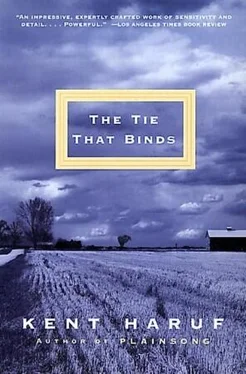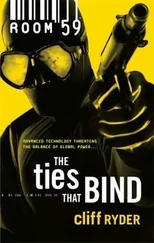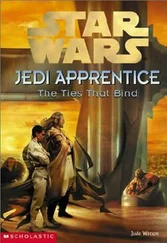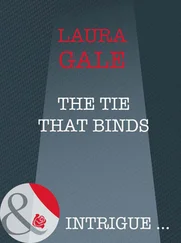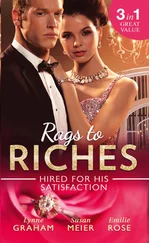He began to work like an immigrant during the day and to drink at night like there was no tomorrow. He was going on anger and disbelief and about four hours of sleep. He bought more cattle. He went in debt for another section of grass. He hired one of his cronies to help him. The crony was a short, squat, blocky character named Ellis Burns, who looked like a fireplug with a two-day-old beard, or, when they were working cattle in the pasture, like a fat monkey on a circus horse. He moved Ellis into the house with him and did nothing fancy. They fried meat and opened cans, mixed it together in a black frying pan, and boiled coffee. They rinsed last night’s supper off the two plates and the two forks and sat down to eat. And Ellis Burns never did lose weight.
“Damned if I know why,” my dad said. “I worked his ass off too. Maybe it was the beer.”
They went out drinking four or five times every week. They couldn’t go to town to the dark saloon on the corner of Main and First streets, since this was in the time of Prohibition: the saloon was boarded up for a while and then somebody opened it again as a café. They had to drive instead to Leon Shields’s place, a run-down farmhouse east of town, set back a mile off the highway amongst some trees. Some rough characters showed up there, so I’ve been told, but as far as I know it never got busted. Apparently Leon Shields had the sheriff, one of Bud Sealy’s predecessors, gripped hard by the short and curlies, or at least Leon had him tucked deep into his back pocket. I believe Leon knew something about the sheriff and another man’s wife that wasn’t public knowledge and that the wife’s husband didn’t even know about. Besides, I suppose there must have been the usual exchange of quiet-money, to sweeten it all. Anyway, it was that unpainted farmhouse surrounded by trees that my dad and Ellis Burns would drive to, during those three years. They stayed there drinking homemade beer and playing cards all those nights, until finally along about two o’clock Leon would say, “That’s all, boys — Mama’s waiting on me,” and then start turning the lights off so that at the card table in the back Ellis Burns couldn’t tell now whether it was a jack of clubs or a ten of spades that he still had hopes of drawing. Ellis would say, “Now, damn it all, Leon. I was just about to win a hand.”
“No, you wasn’t, “ Leon would say. “I’m saving you money.”
“Hell, too. Turn them lights back on.”
“Nope. I’m going upstairs to play with the kids’ Mama.”
“Turn them lights on. I’m about to fill a straight.”
“Listen, you sawed-off little pecker shit,” Leon would say. “You never seen a straight in your life. Now get out of here ’fore I knock your nose off.”
“By God,” Ellis would say, and he’d be standing up now in a wobbly crouch. “By God, you better pack a lunch. It ain’t going to be no five-minute job.”
But Leon would just laugh then, and my dad would say, “Give us another beer, Leon, and we’ll go home.”
“All right, John. See you tomorrow.”
“No doubt.”
So they would go home then, west and then south on the highway. Before they got more than a mile down the road Ellis would be asleep, just like Lyman had done those few times, only Ellis was sleeping in the front seat now where, before, Edith had sat beside my dad. The almost-full beer bottle would be standing up between Ellis’s legs at his crotch, sloshing beer onto his pants zipper. It didn’t wake him. He slept on with his slack stubbled chin rocking on his chest bone.
But my dad wouldn’t be asleep. Even after those hard nights at Leon Shields’s and all the beer, he wouldn’t be able to sleep very long once he was home again and in bed. He was up every morning before daybreak, kicking Ellis awake, frying eggs in the just-rinsed frying pan, ready to begin branding cattle or stacking hay or shoeing horses. Anything as long as it kept him from thinking. He didn’t want to think.
Then, towards the end of that three-year period of fierce work and hard drinking, my dad began to get into fights. There wouldn’t be any reason for the fights; he would just be at Leon’s, drinking and still too sober, and he would start a fight. It wouldn’t be about anything. He would hit somebody and wait to get hit back, hardly bothering to fend off whatever blows were thrown at him. He had a bad scar from one of those fights, a white break in the black line of his left eyebrow, which I used to admire when I was still of an age where fist fights seemed to prove something. My dad straightened me out about that too.
“All this does is,” he told me, running his thick finger over the wide jagged spot above his eye, “it reminds me how I was a damn fool. It don’t mean a thing else. And don’t you think it does.”
“What was it about, though?” I said. “The fight.”
“Nothing. It wasn’t about nothing. I hit Frank Lutz because he happened to be there and because I wasn’t drunk and because I knew Frank would hit me back. And he did.”
“Did you hurt him?”
“Yes. And I went over to apologize to him the next day. I liked Frank. Had nothing against him.”
“Did he hurt you?”
“Not much. Not enough.”
“Because you were tougher,” I said. “Because you beat him.”
“No,” he said. “And I told you I don’t want you thinking like that, Sanders. I said, not enough, because a month later I hit Frank again. For the same no reason. And he hit me again. That’s why I got this scar, to remind me to stop being such a damn fool — at least that form of a fool anyway. Now do you understand?”
“No.”
“You will.”
But I didn’t understand, not then, not for a few years more. I only really understood it when later I found out what he hadn’t told me about that period of his life — that he and Ellis Burns stopped going out drinking. I was also able to put another set of two and two together and then I understood that instead of drinking beer to keep himself from thinking, my dad married my mother. And I want to think that being married to Leona Turner Newcomb was at least somewhat better than being hit in the face by Frank Lutz. I want to believe that much about it if for no other reason than the fact that pretty soon I came along, I came out of that marriage, and that’s what I meant a while ago when I said I was forgetting myself, take it for a joke.
WELL, I was a surprise to them. Not a shotgun surprise, but a surprise just the same, because Leona Turner Newcomb wasn’t supposed to be able to have babies. She had been married for ten years — from 1910 until 1920— to Jason Newcomb, who worked in the Holt Bank, with red garters on his sleeves and who sported a clean little moustache under his fine nose. Together they hadn’t had any children in a decade. But I don’t know that children would have made any difference to them. Children would just have made things stickier, I suppose, because one morning in August of 1920 Jason Newcomb put on a black bowtie and combed his hair wet and then went down to the cellar and hanged himself with a cotton rope. My mother thought he had gone to work, and the bank thought he was taking a sick day. So he wasn’t discovered until late that afternoon when my mother went down to the cellar to get some potatoes to peel for supper. I guess by then that his face had stopped being blue but that he had begun to be pretty much bothered by spiders. My mother, Jason Newcomb’s wife, didn’t like talking about it. She was twenty-seven at the time.
So she was the young Widow Newcomb then, for about five years. She was good-looking enough, too, in a churchy women’s society sort of way, with pins tucked neat into her dark blond hair to keep it trim, and she wore high-necked collars with lace and kept her shoes polished. She still keeps herself up, even today out there in that new brick house at the edge of town where she lives with that faint red on her cheeks, which she expects me to kiss, and that blue on her eyes, and maybe that’s because she fears that she will outlive Wilbur Cox too and will need to be ready to do it all over again, even in her eighties. I don’t know why she bothers; she’s in two or three different wills by now, but I know she didn’t have Mr. Cox then and she didn’t have my father yet either. During those five years that she was still the Widow Newcomb (and he apparently didn’t leave her anything but a little gimcrack house in town), my mother kept her nose clean, brushed her blond hair the required one hundred strokes, applied cream to her face, went to the Methodist Episcopal Church, smiled, and during working hours she sold hats to the Holt ladies in Mrs. Kerst’s Millinery Shop on Main Street, next door to the Gem Theater, opposite Doc Packer’s storefront office. She was probably good at that too — selling hats, I mean. She certainly knew how to say what she thought you wanted to hear. She could even make it sound like something you yourself had thought of. My mother, at that time, must have been one of those women that other women call poor brave dears and then sigh and say My goodness.
Читать дальше
